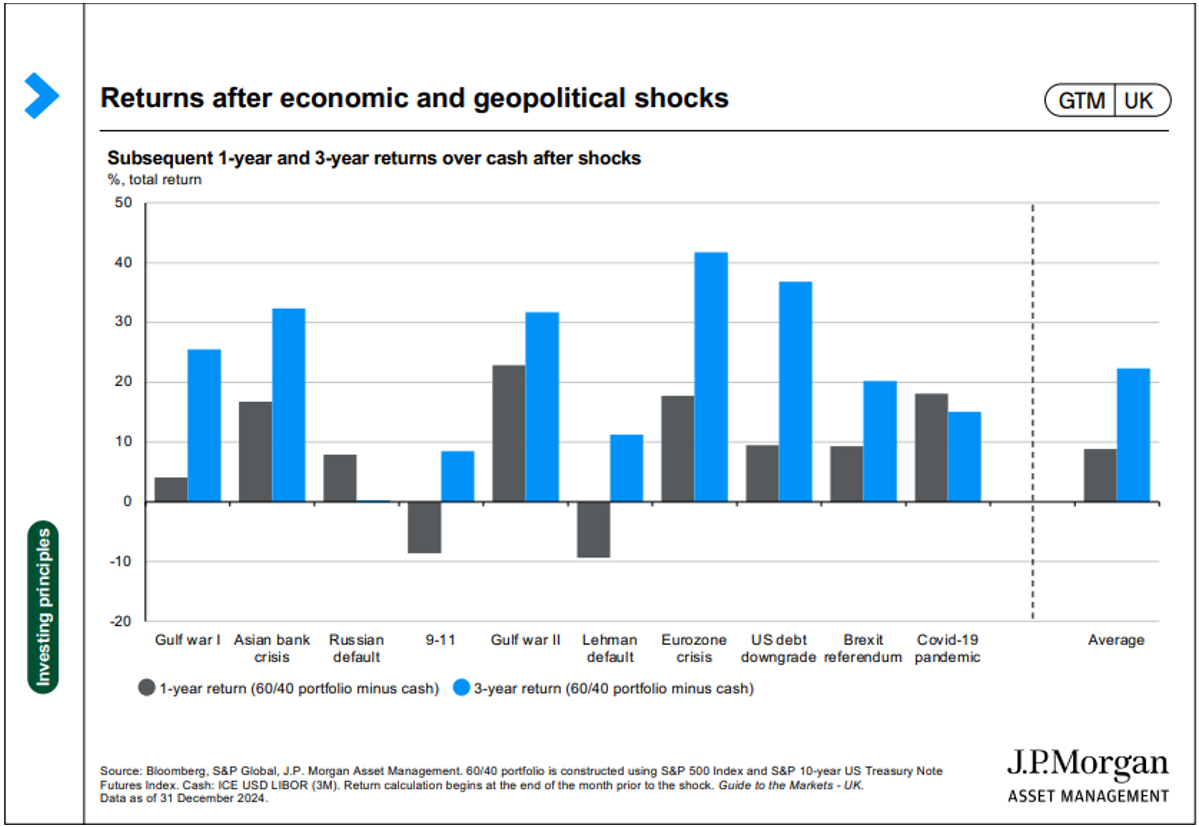
Savings & investment

In times of market decline, it’s easy to fall into the trap of reacting impulsively. However, it’s important to remember that successful investing is about playing the long game not making knee-jerk reactions to short-term market fluctuations. By staying committed to a long-term strategy, you’re more likely to achieve your financial goals, rather than chasing quick profits that are often elusive.
The secret to long-term success lies in sticking to a well-thought-out strategy, which is far more effective than chasing short-term profits that often lead to disappointment. Let’s explore why maintaining a long-term approach is crucial for achieving your financial objectives.
When markets fall, it’s natural to feel the urge to “do something.” Whether it’s selling off assets or trying to time the market. The idea of quick profits and instant gratification can be very appealing, especially when you see a sudden dip in prices. Some investors may attempt to buy and sell based on predictions of short-term market movements, believing they can beat the market by making the right moves at the right times.
However, market timing, which involves buying and selling based on predictions of market direction, is often a strategy fraught with risk. Numerous studies show that this approach tends to yield suboptimal results in the long run, as accurately predicting the market is nearly impossible.
The core of market timing revolves around predicting price movements and making decisions based on those predictions, whether to buy when you think prices will rise or sell when you anticipate a decline. The goal is to capitalise on these forecasts to generate short-term profits. However, the challenge lies in the unpredictable nature of the market.
Markets are influenced by a wide range of factors, from economic indicators to geopolitical events, making it incredibly difficult to predict short-term movements. For those trying to time the market, two correct decisions are needed: when to exit and when to re-enter. Getting either of these wrong can lead to significant financial losses. And remember, even the most experienced investors can’t consistently predict market movements.
For example, sheltering in cash can be tempting after economic and geopolitical shocks but history suggests this is rarely a good idea. When looking at a select number of shocks since 1990, a 60/40 portfolio of stocks and bonds has outperformed cash 80% of the time over a 1-year horizon, and always over a three-year timeframe:

Instead of trying to time the market, focus on strategies that embrace long-term growth and consistent investing. One of the most effective methods is pound cost averaging, which involves investing a fixed amount regularly, regardless of market conditions. This strategy smooths out the volatility by investing consistently over time, rather than attempting to catch the “perfect” moment.
For example, instead of investing a lump sum all at once, you might decide to invest a fixed amount each month, say £1,000. This reduces the risk of buying during an inflated market and allows you to benefit from purchasing more shares when prices are lower. It’s an approach that minimises the emotional side of investing especially during market downturns.
While it’s tempting to react to market dips, the key to long-term investing success is consistency. Pound cost averaging enables you to weather short-term market fluctuations by focusing on regular contributions over time, instead of worrying about when to buy or sell. Over the long term, this approach allows you to accumulate more assets at lower prices during market downturns.
And while this method doesn’t guarantee a profit, it does tend to mitigate the risk of emotional decisions and knee-jerk reactions. By focusing on time in the market, you let the power of compound growth and consistent investment work for you.
In conclusion, when the market dips, remember that your best option is often to stay steady and let your investments grow over time. Stick with your plan, resist the urge to act impulsively, and enjoy the benefits of consistent, patient investing.
If you’re looking to revisit your financial plan or explore new investment opportunities, we’re here to guide you. Our team can offer personalised advice and insights tailored to your unique circumstances, helping you navigate uncertainty with confidence.
THE VALUE OF YOUR INVESTMENTS (AND ANY INCOME FROM THEM) CAN GO DOWN AS WELL AS UP, WHICH WOULD HAVE AN IMPACT ON THE LEVEL OF PENSION BENEFITS AVAILABLE.